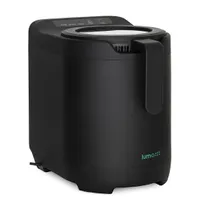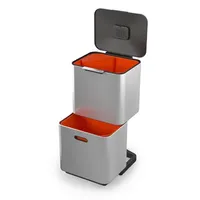9 experts tips to keep your trash can clean and kitchen insect-free this summer
Rid the pests and blitz bad odors
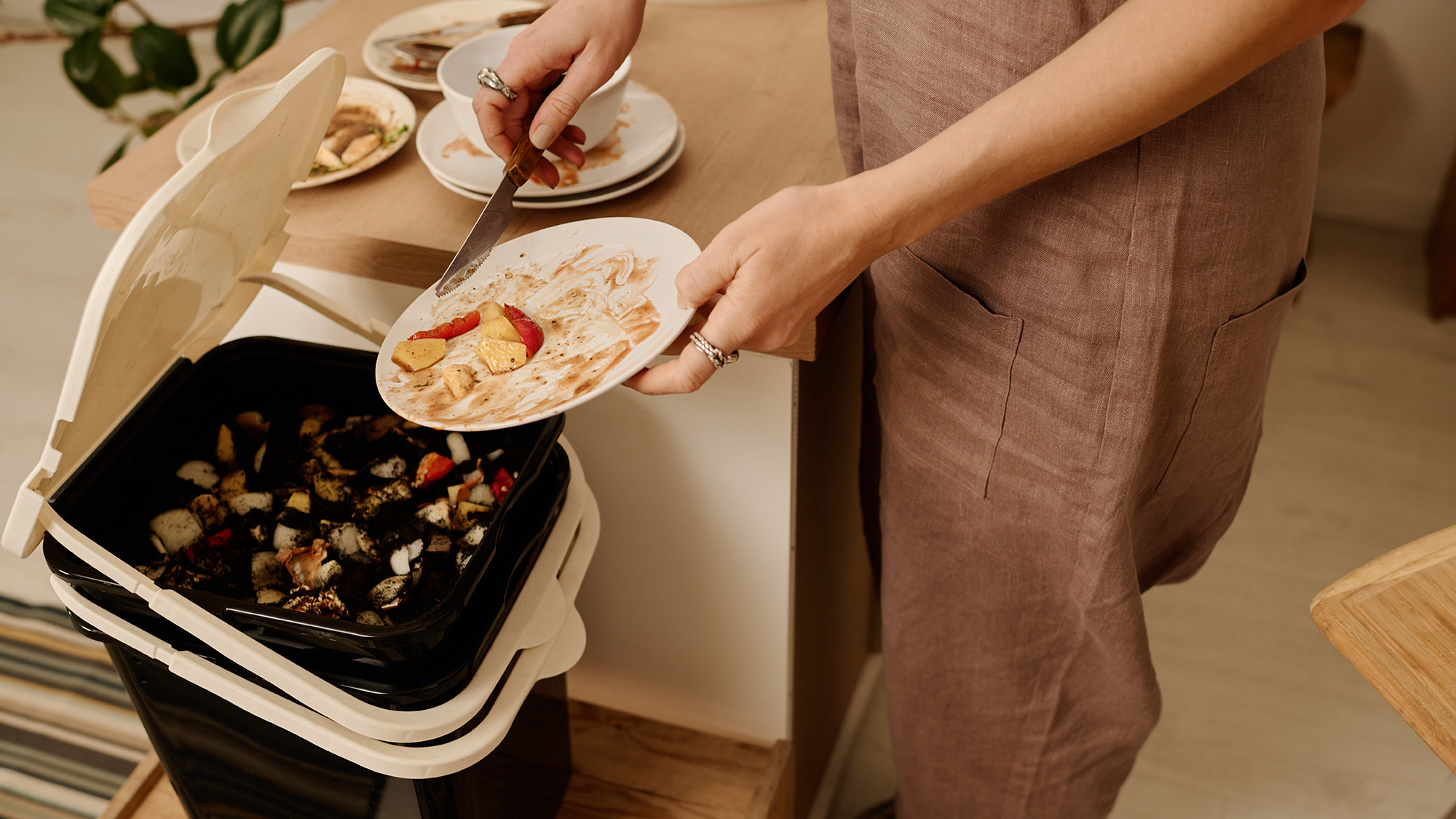
Here at Tom’s Guide our expert editors are committed to bringing you the best news, reviews and guides to help you stay informed and ahead of the curve!
You are now subscribed
Your newsletter sign-up was successful
Want to add more newsletters?

Daily (Mon-Sun)
Tom's Guide Daily
Sign up to get the latest updates on all of your favorite content! From cutting-edge tech news and the hottest streaming buzz to unbeatable deals on the best products and in-depth reviews, we’ve got you covered.

Weekly on Thursday
Tom's AI Guide
Be AI savvy with your weekly newsletter summing up all the biggest AI news you need to know. Plus, analysis from our AI editor and tips on how to use the latest AI tools!

Weekly on Friday
Tom's iGuide
Unlock the vast world of Apple news straight to your inbox. With coverage on everything from exciting product launches to essential software updates, this is your go-to source for the latest updates on all the best Apple content.

Weekly on Monday
Tom's Streaming Guide
Our weekly newsletter is expertly crafted to immerse you in the world of streaming. Stay updated on the latest releases and our top recommendations across your favorite streaming platforms.
Join the club
Get full access to premium articles, exclusive features and a growing list of member rewards.
A smelly kitchen bin is among the worst household smells. A buildup of cooked and uncooked food, leftover kitchen scraps, and even animal food contributes to a stink beyond all stinks. And it’s all heightened in summer with the extra heat that ramps up bacterial growth and speeds up the decomposition of organic waste. What we’re left with is a bad smell emitting from our kitchen bin.
But, while we hold our noses, insects swarm in and feed on the goods, invading our homes and spoiling our summer.
However, I'm here to help save your senses, along with Nancy Emery, cleaning expert at Tap Warehouse.
Together we share 9 ways to keep your kitchen garbage clean and insect-free in the summer. Because once it starts to smell and overripe fruit and vegetable waste ripens, it’s also a breeding ground for pesky fruit flies.
1. Keep on top of the cleaning
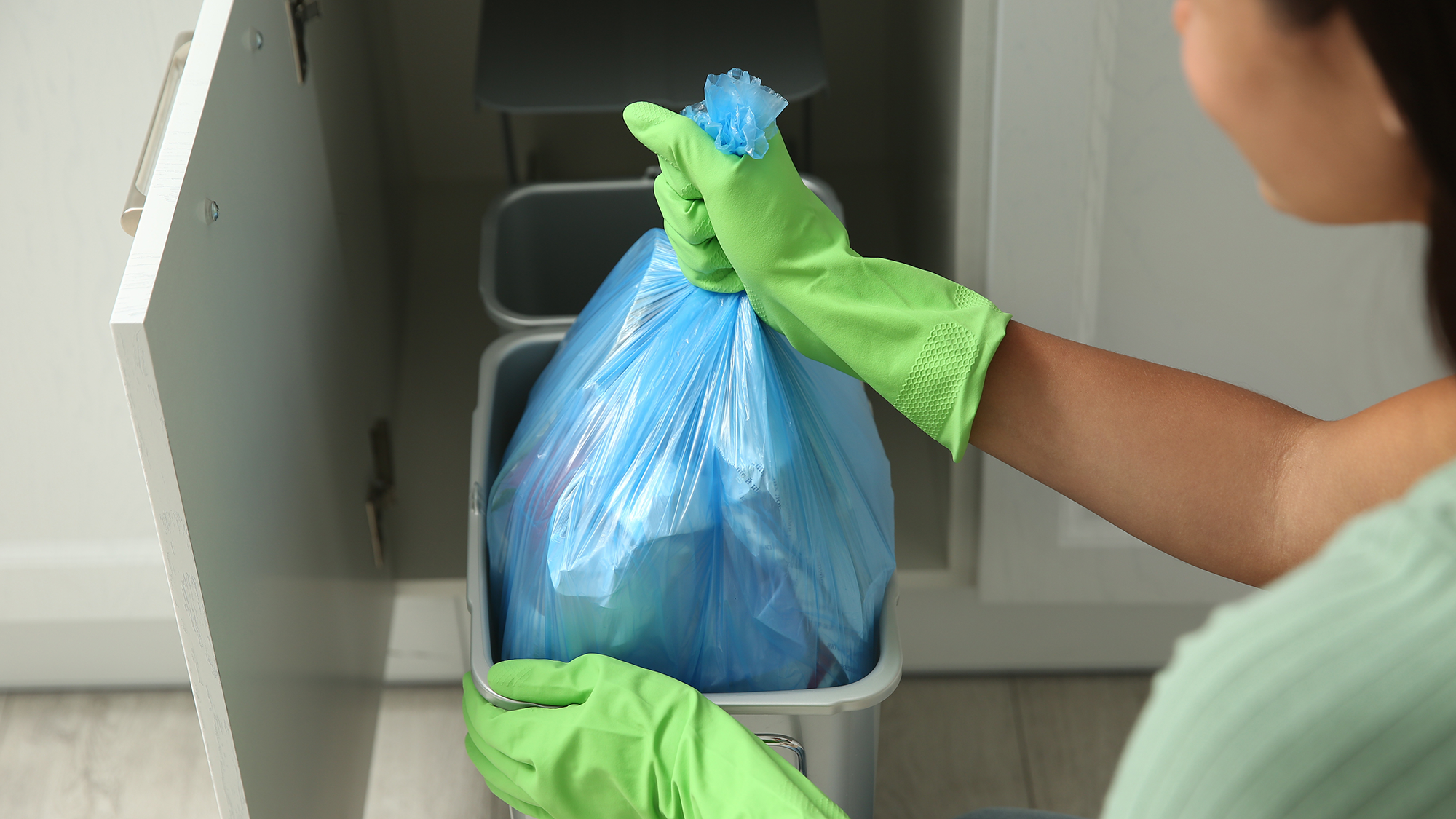
There’s really nothing as valuable as staying on top of this gross household task to ensure it doesn’t get out of hand. Emery says, “Cleaning regularly is the best way to keep on top of your kitchen hygiene and limit the spread of bacteria and bad smells. Try to ensure that every spill or splatter is cleaned straight away and regularly clean the lid of your bins to ensure no unseen bacteria is left behind.”
I always use an antibacterial spray on my garbage can, such as Method’s Antibacterial All Purpose Cleaner Spray, $4 at Amazon, which has a refreshing Citron scent.
2. Don't use flimsy bags
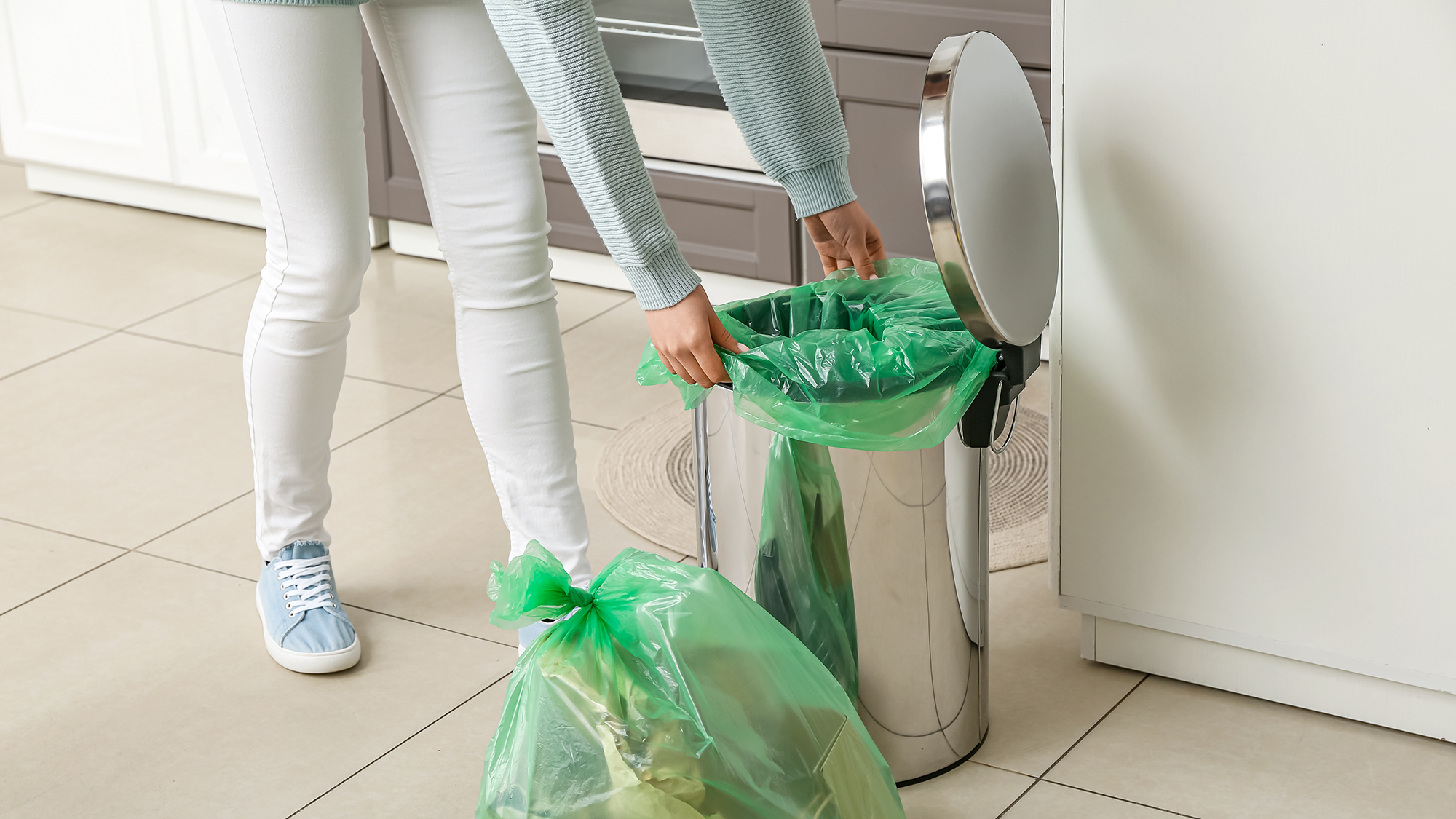
Emery also recommends considering the bin bags you use. Yes, you heard it, don’t even attempt to fill your bin without one. “It may seem obvious, but strong bin bags are also essential. If you’re using flimsy bin bags that tear regularly, you’ll have to clean the bottom of your bin more often to keep on top of smells.”
Get instant access to breaking news, the hottest reviews, great deals and helpful tips.
I always use biodegradable recycling bags for my compost bin, such as these Airnex small compost bags designed for a countertop, currently $11 at Amazon. Superbio also sells a range of compostable trash bags, including these 4-gallon drawstring bags, for $21 at Amazon.
Other than using bin liners, you could place newspaper in the bottom of your bin to absorb spills.
3. Try white vinegar
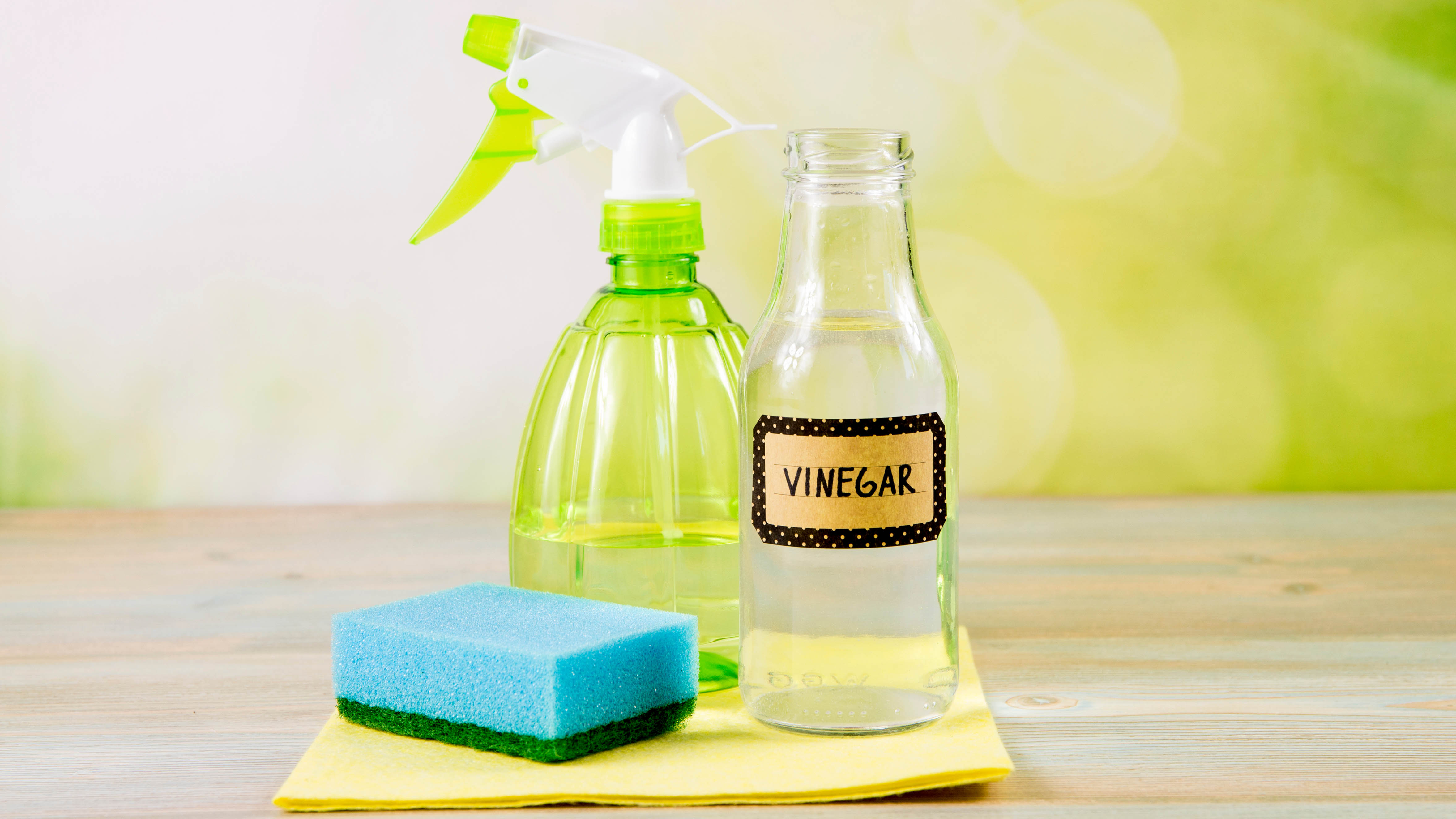
With summer heat comes unwanted flies, who land on rotting rubbish and lay their eggs. And before you have time to swish them away, the eggs have hatched into maggots. Yuck!
Emery explains, “As the temperature increases, it’s not unusual for maggots to be found among rubbish as flies become drawn to leftover waste, which rots faster in the heat.”
However, she has a solution to clear away the mini-beasts. “Cleaning your bin with a white vinegar and hot water solution is sufficient to extinguish maggots and their eggs, too,” she advises.
4. Reuse your coffee grounds
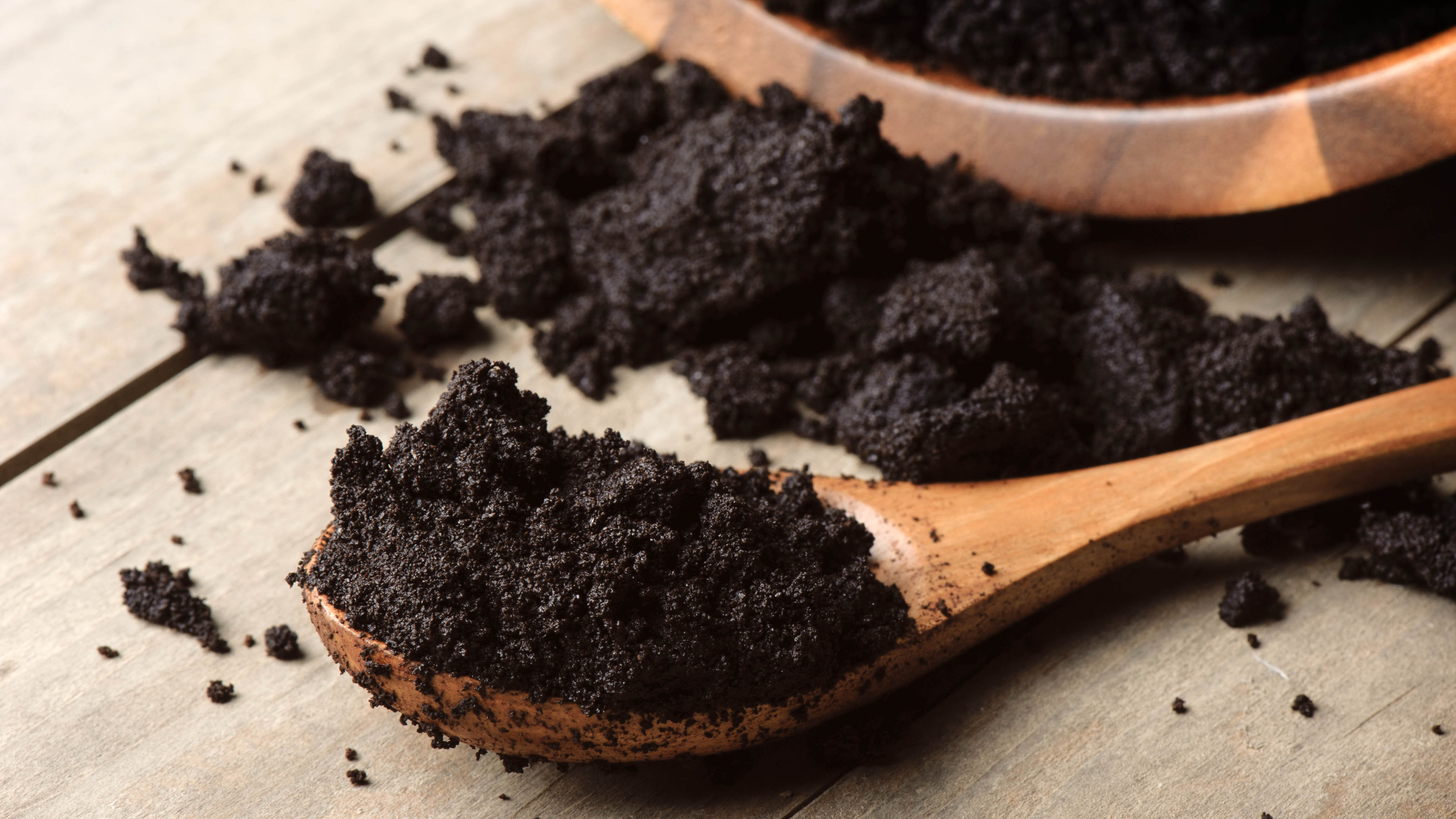
Coffee has many uses. Apart from perking us up in the morning with a caffeine hit, this adaptable bean can be used to create a green and healthy lawn and perk up our plants. However, it’s a great deodorizer, too, and apart from being reused outside, coffee grounds are a helpful indoor cleaning aid.
Emery says coffee grounds can be used to neutralize bad odors, and she recommends, “Simply sprinkle ground coffee at the base of your bin (underneath the bin bag) to eliminate lingering smells.”
Apart from coffee grounds, baking soda works a treat at neutralizing smells. Sodium bicarbonate is an alkali, and when it comes in contact with an acidic odor, it eliminates the smell.
5. Freeze your waste

It may seem a little extreme, but Emery suggests taking the cold option, “For items that can’t be immediately disposed of, consider freezing them until bin collection day to prevent them decomposing,” she says. What’s more, “the cold temperature will kill any potential fruit flies and eggs,” she adds.
But apart from freezing food items that might decompose and cause a stink, be mindful of how you dispose of certain food items.
I always rinse through meat and fish packaging before discarding the containers, as lurking bacteria can quickly grow and smell. And, if you have a compost heap in your yard, don't delay in moving any compostable food waste outside.
6. Break it down
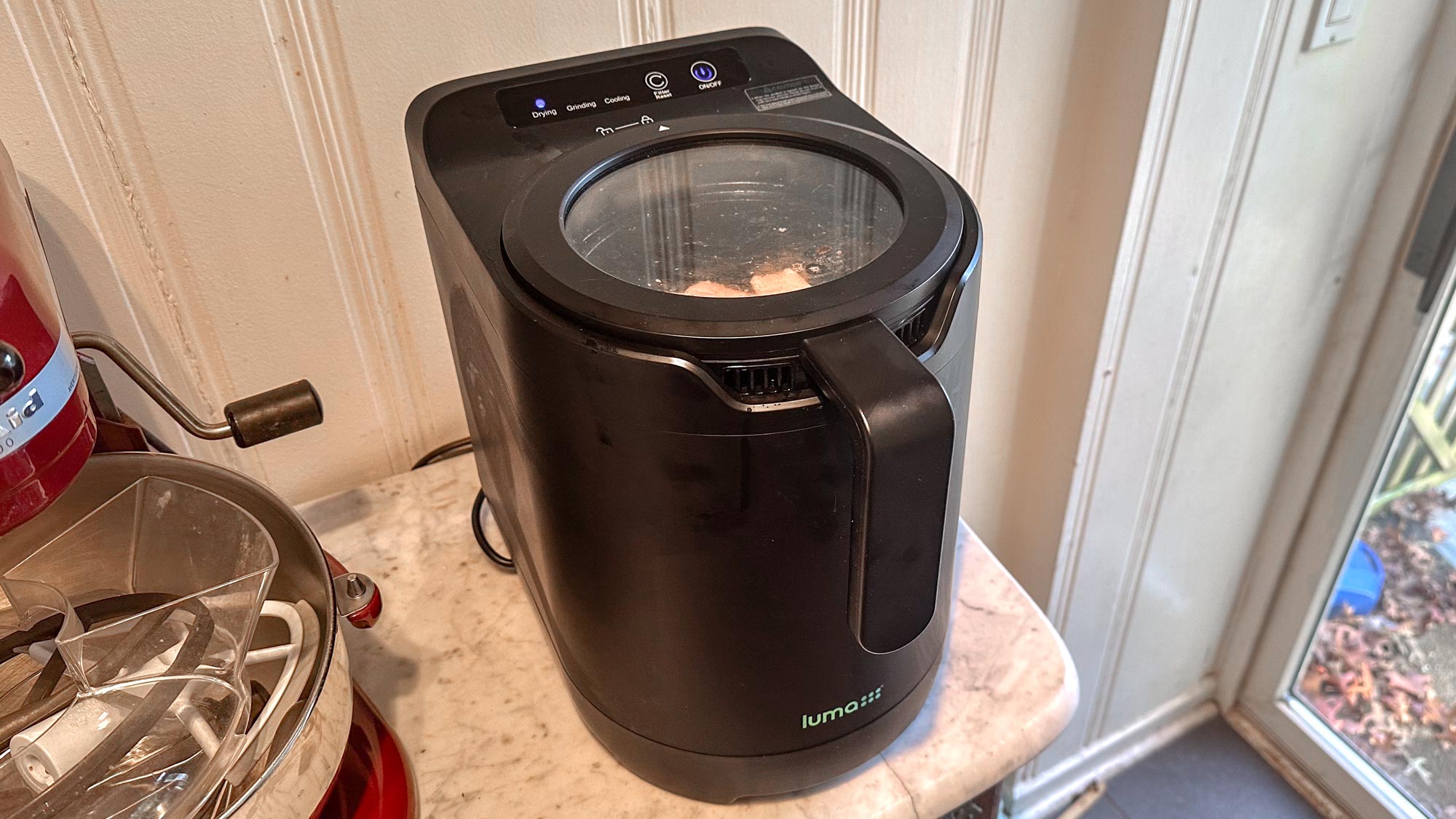
Apart from freezing any particularly pungent food waste, another option is to break your waste down using an electric compost bin. My colleague, Mike Prospero, U.S. Editor, recommends Luma's Electric Kitchen Composter, and gave it a 4-star rating in his review.
The benefit of using an electric composter is that is grinds up food scraps and turns them into dried-out compost, and is especially handy if you don't have an outside composter.
This countertop compost bin turns food waste into nutrient-rich plant food, pulverizing and reducing the food by up to 90% with 3- 6 hours. You can monitor the progress through a clear top window.
7. Keep your waste secure
It may seem simple, but switching to a more secure kitchen bin with a secure seal, will help eliminate odors. While, it won't work on its own — you'll still need to clean your bin and empty it regularly — it can help prevent odor overspill.
And apart from trapping odors, a tightly sealed lid will prevent unwanted pests, such as fruit flies, seeking out the scent and invading your kitchen and beyond.
This premium kitchen bin from Joseph Joseph has an odor filter to prevent any nasty spells, and there's a separate food waste compartment with its own lid to keep food scraps extra secure and even allow you to add them to a compost heap.
8. Gather a collection of fragrant herbs
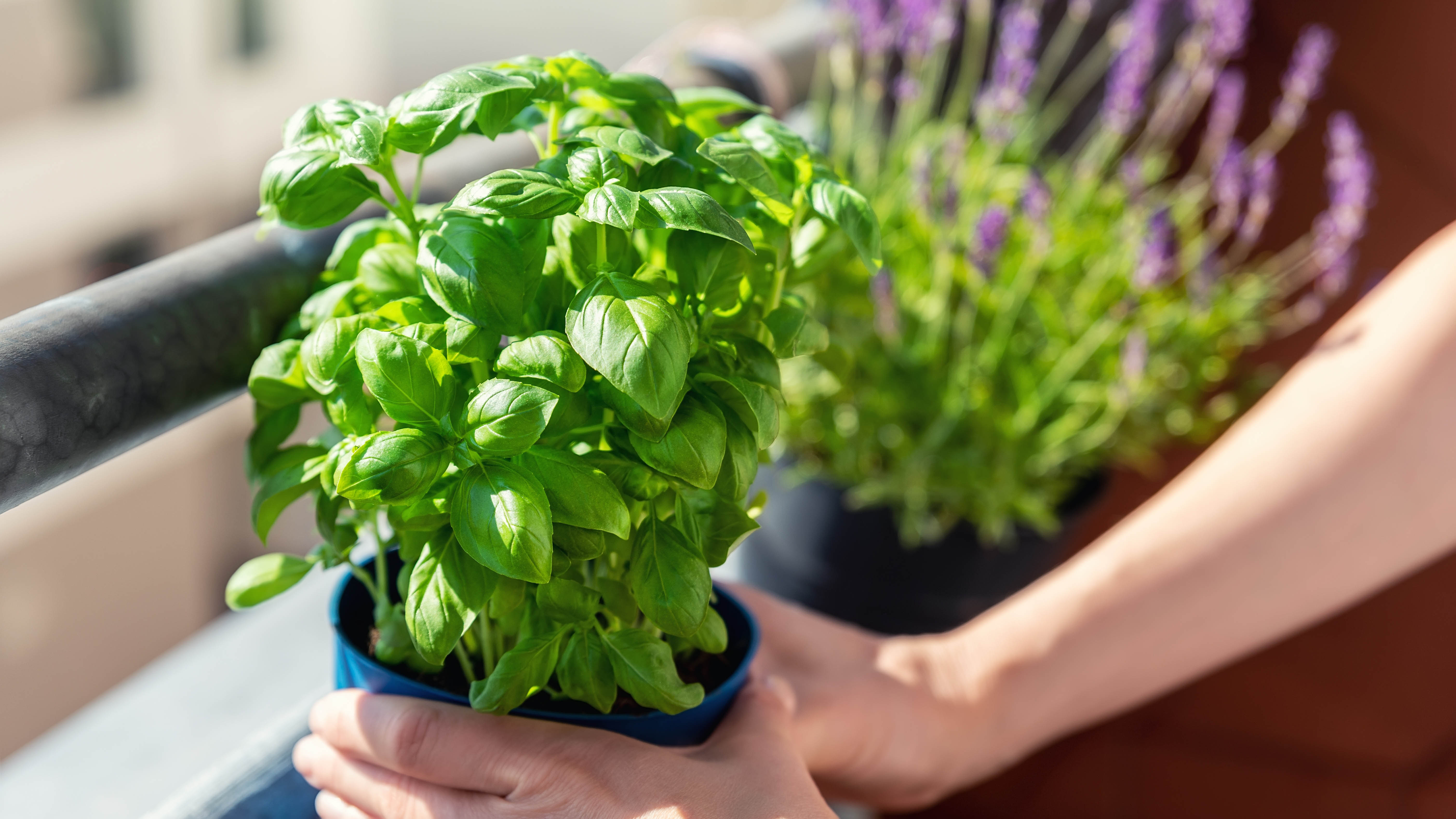
Fruit flies love to gather around bins, but Emery says there are a few fragrant herbs that will do the trick to keep them at bay, “They dislike basil, mint and lavender,” she says, “so it’s recommended to store the plants close to your bins.”
Apart from deterring fruit flies, the fragrant herbs will fill your kitchen with scent and can be added to your dishes for an extra culinary flavor.
9. Keep your trash can away from heat
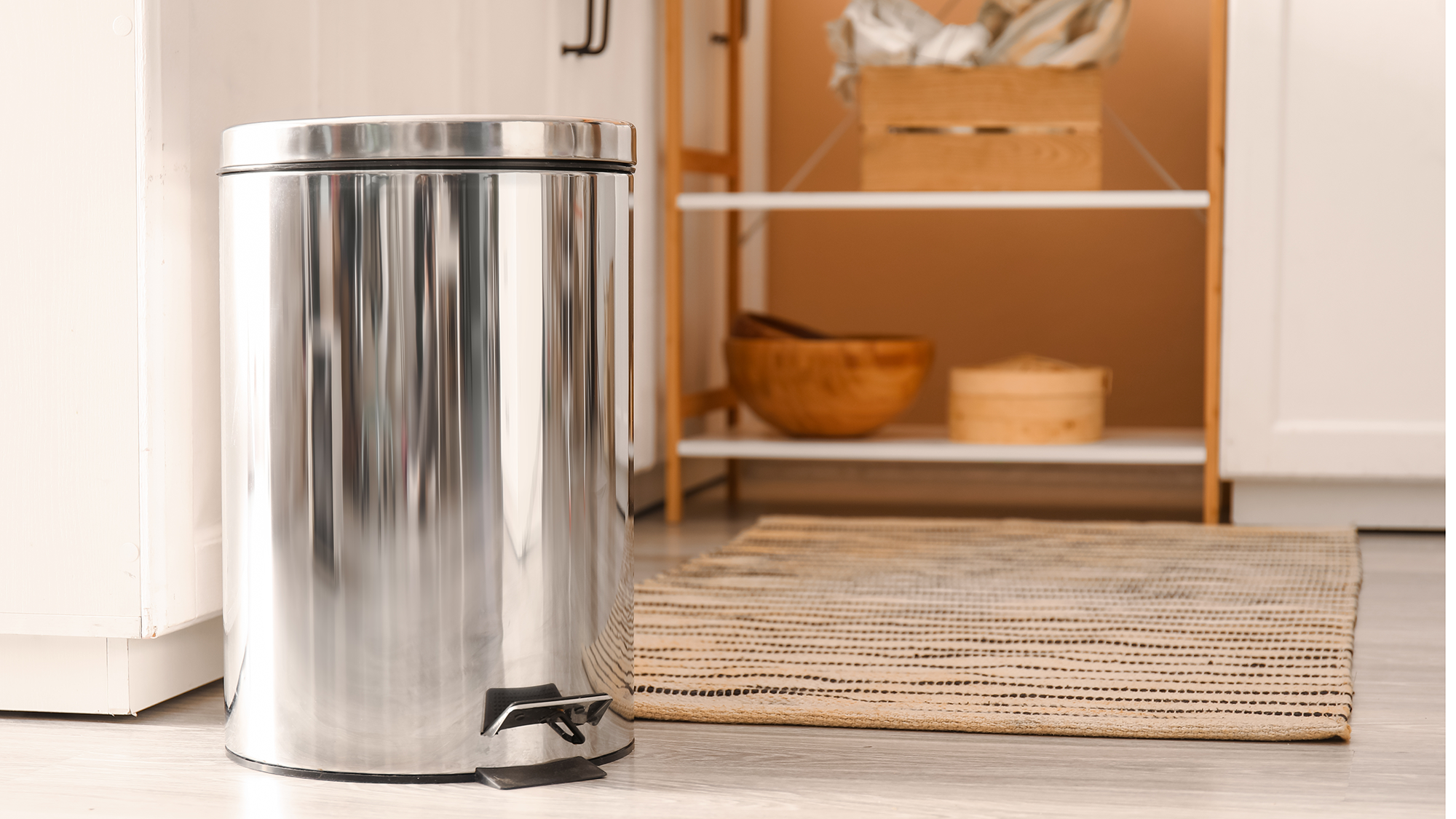
There’s nothing that’s going to make your bin stinkier than if it’s placed in the hottest spot in your kitchen, with Emery adding that heat will speed up decomposition. For this reason, she recommends keeping your bin in a shaded area of your kitchen, away from direct sunlight, as “shading helps keep the bin cooler and reduces odor buildup.”
Additionally, other areas to avoid placing a bin include those near any heat sources, such as an oven or heating vent.
More from Tom's Guide
- How to get rid of drain flies
- 9 plants that repel fruit flies and keep them out of your home
- Keep flies out of your home this summer — pair these 2 cheap household staples to deter them

Camilla is the Homes Staff Writer and covers everything to do with homes and gardens. She has a wealth of editorial experience, mounting over 30 years, and covers news and features, tests products for reviews and compiles buying guides.
Her work has appeared in business and consumer titles, including Ideal Home, Real Homes, House Beautiful, Homebuilding & Renovation, and Kitchen & Bathroom Business. She’s even appeared on the cover of Your Home, writing about her own house renovation.
Although she’s obsessed with decorating her home, she also enjoys baking and trying out the latest kitchen appliances. But when she’s not inside, you’ll find her pottering about in her yard, tending to her vegetable patch or taking in her prized hydrangeas.
You must confirm your public display name before commenting
Please logout and then login again, you will then be prompted to enter your display name.
 Club Benefits
Club Benefits










